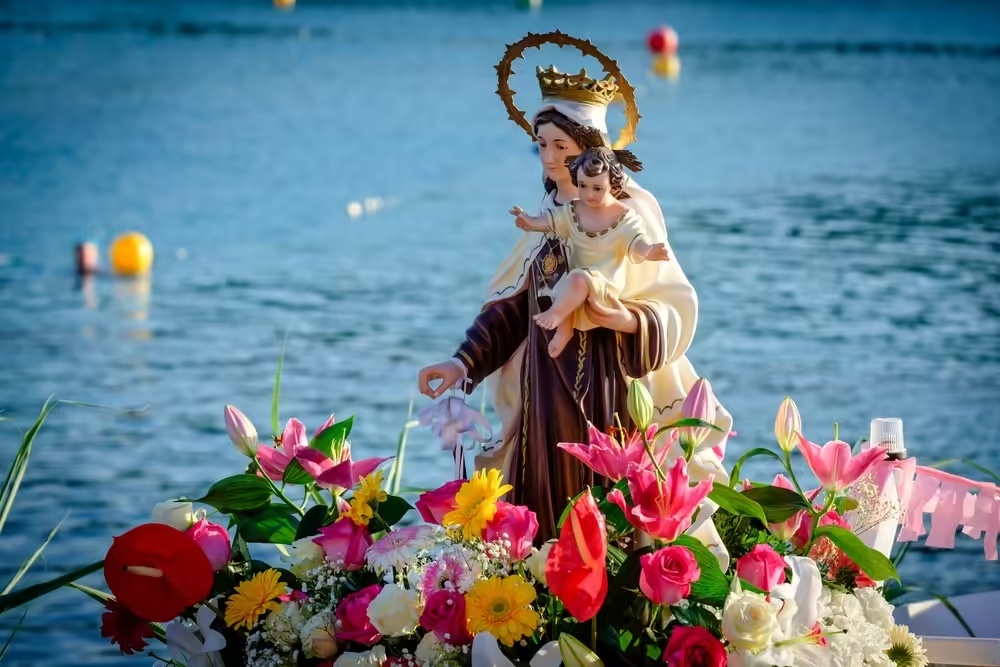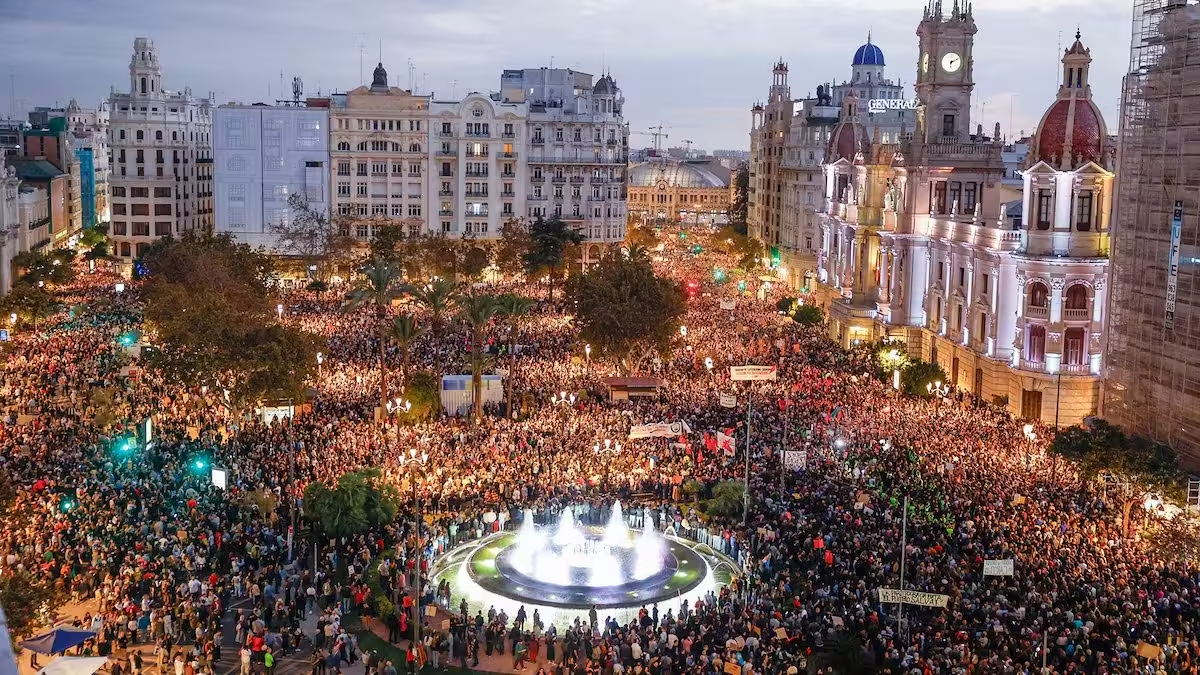Coastal Towns Celebrate Virgen del Carmen Today
If you woke up to the sound of loud explosions today, you may be wondering what’s going on. It’s not construction work or a military exercise, it’s the Festivity of the Virgen del Carmen, one of the most widely observed celebrations in Spain’s coastal towns.
Held every year on July 16, this day honours Our Lady of Mount Carmel, as she is referred to in English, the patron saint of sailors, fishermen, and seafarers. In places like Cartagena, San Pedro del Pinatar, Torrevieja, Málaga and many other coastal communities, you’ll likely hear fireworks at dawn, smell incense in the streets, and see people dressed in their best as they prepare for a day of processions, music, and celebrations.
Who Is the Virgen del Carmen?
The Virgen del Carmen is a title given to the Virgin Mary in her role as protector of the Carmelite Order. Over time, she also became known as a spiritual protector of those who work at sea. Her image is often seen in fishing boats, harbours, and churches near the coast, a sign of faith, protection, and hope for safe passage through life’s storms.
In Spain, devotion to the Virgen del Carmen grew particularly strong in fishing communities. For generations, fishermen and sailors have trusted in her guidance and prayed to her for safety at sea. Today, she remains a symbol of comfort and strength for many families whose lives are tied to the ocean.
A Day Full of Tradition
July 16 is marked by a full day of activity in towns and villages near the coast. The day usually begins with early morning fireworks or firecrackers, a noisy tradition that announces the importance of the day. Many people attend a mass in honour of the Virgin, and in many towns, this is followed by a solemn yet emotional religious procession.
The most iconic part of the celebration is the marine procession, where a statue of the Virgen del Carmen is carefully placed on a decorated fishing boat and taken out to sea. The lead boat is often followed by a flotilla of vessels, all sounding their horns in unison and sometimes throwing flowers into the water. This act is meant to bless the sea and remember those who have been lost to it.
La Virgen del Carmen embarca sin incidentes en Puerto del Carmen #VirgendelCarmen #PuertodelaCruz #RTVC pic.twitter.com/ARVk0NBQ8N
— RTVC (@RTVCes) July 15, 2025
Where Is The Virgen del Carmen Celebrated?
The Festivity of the Virgen del Carmen is especially popular in Andalucía, Murcia, Valencia, Galicia, and the Canary Islands, though it’s celebrated in fishing towns and ports all over Spain.
In Cartagena, the marine procession is one of the most beautiful events of the year, with the Virgin’s statue carried from the church to the port amid music, prayers, and flowers. San Pedro del Pinatar also holds an impressive sea procession that draws large crowds, while in Torrevieja, boats are lit up and the whole harbour area fills with people watching from balconies, beaches, and the promenade.
Some towns also organise local fairs, food stalls, live music, and fireworks displays at night, turning the religious day into a full-blown community festival that can last days. As many people travel from inland Spain to the coast during the summer months this festival is enjoyed by all not just the people from the port towns.
Is July 16 a Bank Holiday in Spain?
Although July 16 is not a national bank holiday in Spain, it is often treated like one in many coastal towns. Local councils may declare it a local holiday, meaning some shops, offices, and public services could close for the day. In places where the Virgen del Carmen is especially important, like Cartagena, San Pedro del Pinatar, or Málaga, many residents take the day off to join in the celebrations or watch the marine processions. If you’re visiting a coastal town on this date, it’s worth checking local hours and events in advance.
Why It Matters
While rooted in religious tradition, this day has become something more. For many, it’s a way to honour family history, remember lost loved ones, and show appreciation for the sea, which continues to feed, employ, and shape entire communities in Spain.
It’s also a day for togetherness. Whether you’re a believer or simply enjoy the atmosphere, the Festivity of the Virgen del Carmen is a reminder of the strength and identity found in shared customs. And in a fast-moving world, that kind of connection, to the past, to nature, and each other, is something truly worth celebrating. And let’s be honest, these traditions and celebrations are part of the reason people fall in love with Spain.
Share this content:




2 comments